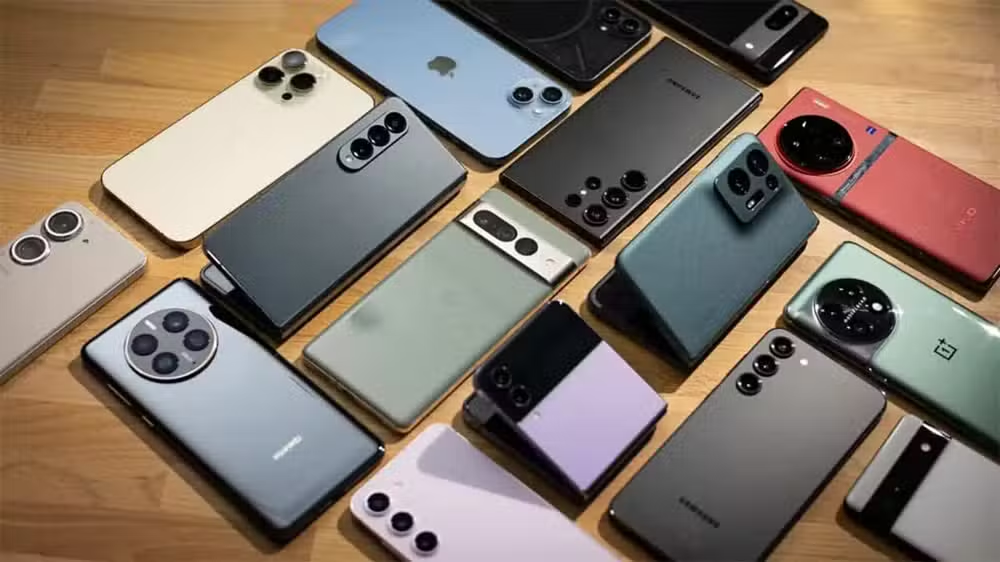The Pakistan Telecommunication Authority (PTA) has officially clarified its position regarding the import and smuggling of Indian-manufactured iPhones and other mobile devices. The regulatory body emphasized that restricting such imports is beyond its jurisdiction, highlighting that customs and other relevant authorities are responsible for enforcing the ban on Indian products.
Cabinet Division’s Cybersecurity Advisory on Indian iPhones
The clarification from PTA came in response to an advisory issued by the Cabinet Division of Pakistan, which classified Indian-made iPhones as a potential cybersecurity threat. This advisory raised concerns regarding data privacy, national security, and the risks associated with using devices originating from India.
In recent years, cybersecurity has become a top priority for Pakistan, with authorities taking strict measures to safeguard user data and prevent potential cyber espionage threats. The advisory further solidifies the government’s stance on restricting Indian-manufactured products, citing security vulnerabilities and data privacy concerns.
PTA’s Role in Regulating Mobile Devices
In its statement, PTA reaffirmed that its authority is limited to ensuring compliance with technical standards under the Telecommunications (Re-Organization) Act 1996 and the Terminal Device Type Approval Technical Regulation 2021.
As per Pakistan’s Import Policy Order 2022, all Indian-origin products are banned, including smartphones and other mobile devices. Furthermore, Indian-made iPhones are blacklisted and cannot be officially registered in Pakistan. This means that even if these devices enter the country, users cannot activate them through Pakistan’s Device Identification Registration and Blocking System (DIRBS).
Blocking Indian Device Registration in DIRBS
PTA further elaborated that it blacklists the Type Allocation Code (TAC) assigned to India by the Global System for Mobile Communications Association (GSMA). This technical measure prevents the registration of any Indian-made mobile phone in Pakistan.
For context, DIRBS is an advanced system used by PTA to track and block unregistered or unauthorized mobile devices. Any smartphone that is not registered within the system is automatically rendered useless on local networks, preventing illegal imports and unauthorized sales.
Who Regulates the Import of Mobile Devices in Pakistan?
Despite the measures taken by PTA to restrict the activation of Indian-manufactured smartphones, the authority made it clear that it does not have the legal power to regulate mobile phone imports, sales, or purchases. The responsibility of preventing the import or smuggling of such devices falls under the jurisdiction of Pakistan Customs and other relevant departments.
A PTA spokesperson reiterated that their role is strictly limited to technical compliance and telecom regulations. They urged users to be aware of these restrictions and avoid purchasing Indian-made devices, as they will not be functional in Pakistan.
Pakistan’s Stance on Indian-Made Technology
The Pakistani government has maintained a strict trade policy against Indian products, especially in the wake of diplomatic tensions between the two countries. The ban on Indian smartphones and other electronics aligns with Pakistan’s broader strategy of restricting trade ties with India.
Furthermore, cybersecurity concerns remain a major factor in such decisions. With increasing cyber threats and data privacy risks, Pakistani authorities remain vigilant about restricting foreign technology that may pose a security risk.
What This Means for Consumers in Pakistan
For Pakistani consumers, this clarification means that:
- Indian-made iPhones and other mobile devices cannot be legally imported.
- Even if such devices enter the market, they cannot be registered in DIRBS, making them non-functional.
- PTA is not responsible for stopping their import—this falls under customs and law enforcement agencies.
Users are advised to purchase officially approved mobile devices from authorized retailers to avoid connectivity issues and potential legal complications.
The PTA’s statement on Indian-made iPhones and mobile devices highlights the strict trade and cybersecurity policies in place to protect Pakistan’s digital infrastructure. While the import ban is enforced by customs and other authorities, PTA ensures that such devices cannot be activated or used within Pakistan.
As cybersecurity remains a top priority, authorities are expected to introduce stricter regulations to safeguard user data and prevent potential security threats. In the meantime, consumers should exercise caution and ensure they are purchasing legally approved devices to avoid connectivity restrictions.



